
The College of Arts and Social Sciences was conceived out of inquisitive and critical conversations of University Officials who toyed the idea that a big college can give birth to new two colleges. This lingering thought played in the mind of our very own University President, Francisco Gil N. Garcia, who is fondly called, “Sir Iko” to many as a greeting of endearment. His thought was later communicated with clarity and dedication to Dr. Jonald Pimentel, dean of the former College of Arts and Sciences. Years back, Dr. Pimentel narrated in his speech that the idea of splitting CAS, which is one of the oldest colleges of the University, floated from among those retired esteemed professors and administrators.
From a simple conversation and exchange of borderless ideas, Pres. Garcia required the commitment of the Dean to work it through. Upon receiving the go-signal of the President to split the College of Arts and Sciences, Dean Pimentel spent no less than a minute to draft the proposal with the aid of some of his faculty members. He met his Chairpersons and made college-wide consultations for the possible birth of two colleges and it was finally culminated in the College Council meeting. The University Council Members similarly shared the excitement of the College constituents to create the College of Arts and Social Sciences and the College of Science and Mathematics, resulting into its adoption in an emergency meeting.
To formally institute the creation of the two colleges, the University Board of Regents approved the proposal after the affirmation by the University Council. The adoption was evidenced by USM Board Resolution No. 33, s. 2020.
Finally, on May 06, 2020 at around eight o’clock in the morning, “Sir Iko” graced the occasion that installed the first two deans of the two new colleges. Sir Iko expressed his excitement and adulation of great future for the newly created colleges, amidst the crisis of global pandemic brought about by COVID-19. The three university vice presidents: VPAA Consuelo Tagaro, VPRES Cayetano Pomares, and VPRGES Abubakar Murray shared their joy by gracing the historic day.
Dr. Jonald Pimentel was installed as the first Dean of the College of Science and Mathematics; while Prof. Marcos F. Monderin was introduced as the first Dean of the College of Arts and Social Sciences.
CASS is compelled to drive with the following undergrad course offerings: the Bachelor of Arts in English under the Department of English Language and Literature; Kagawaran ng Wika at Panitikang Filipino; Bachelor of Science in Crimonology under the Department of Criminal Justice Education; Bachelor of Science in Political Science and Bachelor of Arts in Philosophy (Pre-Law) under the Department of Social Science and Philosophy; Bachelor of Arts in Psychology under the Department of Psychology.
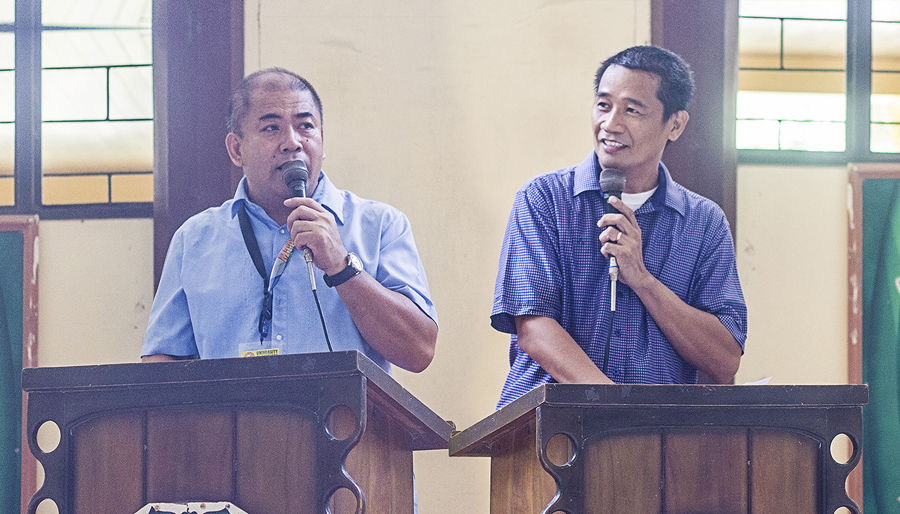
The College of Arts and Sciences had its beginning in 1956 as the General Education Department (GED) mandated to respond to the needs of each student for a “broad general education that will assist each individual to develop his full potential as a human being’. Its first unit head was Dr. Donato B. Pableo from 1956 until he retired on October 21, 1974.
On October 22, 1974, the GED was headed by Prof. Filomena C. Antonio until her retirement in 1977. The GED branched-out into two departments, namely: the Education Department headed by Prof. Sergio Ramos, and the Languages and Sciences Department which became the nucleus of CAS headed by Prof. Librada C. Pableo from 1977 until her retirement in 1987.
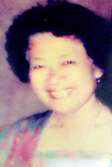
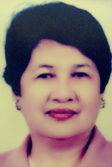
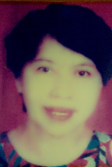
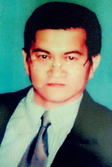
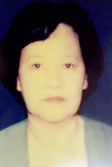
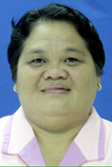
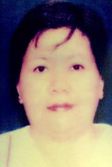
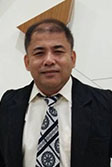
Vision
Excellence in the Arts and Sciences
Mission
Empowerment of faculty and students through quality education.
On March 13, 1978, MIT became a University. The department was converted into a college, the College of Arts and Sciences. Its first dean was Dr. Librada C. Pableo. With its conversion were the two degrees namely: Bachelor of Science in Biology and Bachelor of Science in Chemistry. Two years later, in June 1980, the Development Communication major of the Bachelor of Science in Agriculture from the College of Agriculture was transferred to CAS and became the Department of Development Communication. In June 1983, the Mathematics, Statistics and Physics departments were also transferred from the College of Engineering to CAS.
Dr. Rose Marie Bugarin came next as the Dean of CAS from 1987 to 1992. She was the second dean of the college. However, she went to USA for her post-doctoral on Environmental Studies in August 1989, Dr. Prisciliano T. Bauzon was appointed Officer-in-Charge from August 19989-August 1990. Upon returning to USM, Dr. Bugarin resumed leadership of the College from September 1990 to 1992. It was also during her leadership that the Regional Science Training Center (RSTC) was established. Then she was designated as Director of the newly established Philippine Rubber Testing Center (PRTC).
Prof. Ana L. Tomen was appointed Officer-in-Charge from April 1992 to June 30, 1992 and became the third dean of the College on July 1, 1992 up to her retirement on March 30, 1996. In 1994, the Physics Department was separated from the Mathematics, Statistics and Physics Department. In June 1995, a new degree program, Bachelor of Science in Agricultural Chemistry was offered. Upon the retirement of Dr. Tomen, Dr. Nicanora S. Sorrosa became the Officer-in-Charge from April 1, 1996 to June 30, 1996. She was concurrently the Director of the Regional Science Training Center (RSTC) at USM.
Dr. Grace G. Lopez became the fourth dean of the College from July 1, 1996 to July 21, 2002. She was designated as Supervisor of the newly established Child Care Center and at the same time the Deputy Director for Research of the University. Through the initiative of the Behavioral Sciences Department Chairperson, Dr. Prisciliano T. Bauzon, the USM Teen Center was established in 1998. The center serves and functions as a youth organization, which aims to improve and promote the total well-being of the youth.
A new course offering, Bachelor of Arts in Psychology came into being in June 1997under the Department of Behavioral Sciences. In the same year, two new graduate courses: MS Biology and MA Mathematics were also offered. These graduate courses with already existing MS Development Communication and MAT Biology were given back by the Graduate College to CAS for coordination. In November 2000, another graduate course was offered, MA in Language Teaching (MALT) under the Department of English Language and Literature.
The 14-month crash course program on Accelerated Integrated Teacher Training on Cultural Communities (AITTCC) was offered on October 20, 1999 to December 20, 2000. It was designed to provide an accelerated teacher training to qualified dependents of rebel returnees with the Southern Development Authority as funding agency.
The changing educational environment called for undergoing the accreditation process, which the College had undergone Level I accreditation on November 8-10, 1996 and Level II on September 23-25, 1998. The College continues to operate in the direction of AACCUP standards to pursue quality education. It was also guided and inspired by the vision and mission of the University from which the goals of the College emanate.
The updating of the College to meet the standard is a tedious process. A consultancy visit was done on July 19, 2001 to assess and find out how far the College had complied with the accreditors’ recommendations and its readiness for resurvey. The first resurvey was done last November 21-23, 2001.
On July 26, 2002, there was a turn-over ceremony of the CAS leadership to Dr. Anita B. Tacardon, the fifth CAS Dean, effective August 1, 2002. The challenge to meet the standards of a quality college in accordance with the AACCUP criteria is the focus of the preparations for the second resurvey in 2006.
A tremendous face lifting of the 25-year old CAS building was made. Classrooms, laboratory rooms, comfort rooms, spacious offices were constructed, renovated and improved. Additional facilities were acquired to serve the interest of the students, e.g. drinking fountains, well-ventilated classrooms, well- equipped audio visual room, student park, and sports area, among others.
USM is privileged to have been chosen by CHED to implement the Expanded Tertiary Educational Equivalency Accreditation Program (ETEEAP). The college proposed the BS DevCom under this program and was endorsed by the Academic Council in September 2003 to the Board of Regents which the later approved. This is to cater primarily the non-degree holders who are already practitioners but cannot compete for promotion in their workplace.
In the same year, the Social Action Center for Community Services and Development (SACCSCD) was also created. The center was conceived through the efforts of Dr. Antonio N. Tacardon as its first and current Executive Director. It was established mainly to promote active and lasting social involvement of the professors and technical experts of the University in community development.
Concomitantly, the notable demand for nurses in the international market posed a challenge to the College to consider the possibility of offering the nursing course. The global phenomenon compelled Dr. Anita B. Tacardon to initiate the nursing program to address the local need for a quality nursing school in the area. On December 12, 2003, the BOR gave CAS the blessing to offer BS Nursing, a self-liquidating program with fees different from that of existing regular program. It was duly approved on February 17, 2004 and started to open its eight sections (397 students) last June 2004.
In April 2005, the BOR also approved the creation of the Language Learning Center (LLC). It offers a wide array of language learning packages including Speech for Kids, Theater for Kids, Speech for Teachers and Professionals, English Proficiency, Art of Emceeing and Basic Journalism. The center is currently under the management of Dr. Riceli C. Mendoza of the Department of English Language and Literature.
Another milestone during Dr. Tacardon’s leadership was her initiative to implement the Memorandum of Agreement (MOA) forged by the University and Polytechnic Foundation of Cotabato and Asia, Inc., a partnership venture with an objective to put up a radio station in the University. On December 1, 2005, the college took the lead of putting up a radio station primarily as a training ground for DevCom students in their journalism and broadcasting subjects. This would also serve as the University’s medium for its various outreach programs and research endeavors.
The National Telecommunications Company (NTC) assigned the call letters DXKA-FM with the frequency of 93.3MHz. A month-long test broadcast was done which done on June 28, 2006, to ensure the span of coverage and the fine-tuning of signal transmission. It was finally launched and inaugurated last July 18, 2006 with Allan C. Facurib as designated Station Manager. At present, Dr. Anita B. Tacardon was designated as the Station Manager. The DXKA-FM was eventually renamed as DXVL-FM with the frequency of 94.9MHz.
In June 2009-2010, Dr. Nelson M. Belgira assumed leadership as the sixth Dean of the College. In 2010 to present, Dr. Evangeline A. Tangonan serves as the 7th Dean of the College.
In June 2011, the CAS obtained BOR approval, upon the recommendation of CHED XII the offering of new courses: BS Criminology, now under a separate department of the college and BS Pharmacy under the College of Health Sciences. This is due to the efforts of the faculty of the Department of Social Science and Philosophy and Department of Chemistry respectively under the leadership of Dr. Evangeline A. Tangonan.
In 2012, the Department of Biological Sciences through the assistance of the Department of Environment and Natural Resources XII established the USM Biodiversity, a focal point for bio-environmental researches. The department was also a recipient of 5 million research grant from DOST-PCAARRD on Goat Production and 4.3 million for herbs and spices research. Together with the Department of Chemistry and Department of English Language and Literature, a 21 million research grant from DOST-PCIEERD was granted for Science and Technology Program for Responsible Mining in Mindanao.
In October 2013, the BS Development Communication and AB Psychology submitted for Phase II Level III accreditation by AACUP. The BS Biology program was evaluated for Level IV while AB English, AB Political Science and Bachelor of Library and Information Science were subjected to preliminary survey.
CAS, being a service college of the University, was awarded by CHED a two-storey building for classroom.
At this point in time, CAS is split into two Colleges as approved by BOR-Resolution No. 33 Series of 2020; the College of Arts and Social Sciences (CASS) and the College of Science and Mathematics (CSM).
A transition period will be observed for the transfer of CASS to the present CAS Annex Building (the proposed CASS building). The conversion of classrooms to offices of the present CAS and the conversion of offices to classrooms in CSM shall be the target actions during its first year of implementation. Both the CASS and CSM will be headed by 2 separate full-time deans with Table of Organization following the mandate of the USM code.
The Departments with their present chairpersons under the College of Arts and Social Sciences (CASS) are the following:
- Department of Psychology – Khadiguia Ontok-Balah
- Department of Social Science and Philosophy- Maricar U. Juaneza
- Department of Criminal Justice Education- Vicente T. Delos Reyes
- Department of English Language and Literatures- Mirasol O. Verona
- Kagawaran ng Wika at Panitikang Filipino- Rosemarie F. Sison
- Department of Development Communication- Althea C. Garcia
CASS has the following degree offerings:
- Bachelor of Science in Criminology
- Bachelor of Science in Development Communication
- Bachelor of Arts in English
- Bachelor of Arts in Psychology
- Bachelor of Arts in Political Science- (Revived)
- Bachelor of Arts in Philosophy (Pre-Law) – (New)
The transition Dean of CSM is the concurrent dean of CAS Dr. Jonald L. Pimentel; while the OIC Dean of CASS will be Prof. Marcos f. Monderin.
The Departments with its present chairpersons under the College of Science and Mathematics are the following:
- Department of Chemistry- Estrella E. De la Cruz
- Department of Biological Sciences – Cherie C. Mangaoang
- Department of Mathematics and Statistics- Philip Lester P. Benjamin
- Department of Physics- Romeo David T. Libatique
CSM has the following degree offerings:
- Bachelor of Science in Chemistry
- Bachelor of Science in Biology
- Bachelor of Science in Applied Mathematics (New)
Goal
The College of Arts and Sciences pursues the development of well-rounded persons through a culture of excellence in the arts and sciences for the establishment of a just and humane society.
Objectives
- To develop the intellectual capabilities, skills and right attitude of students in the arts and sciences for them to be globally competitive.
- To develop critical awareness and appreciation of the cultural, scientific, and technological advancements to bridge the gap among cultural communities.
- To undertake researches in the arts and sciences for curricular enrichment, community empowerment, and human development; and
- To create and strengthen linkages, collaborative efforts, and networking for the enhancement of programs in instruction, research, extension, and resource generation.
The continued demands to enhance human and social security rest in the birth of this course offering of the Department of Social Science and Philosophy (DSSP). This course primarily draws its significance in addressing the needs of strengthening the process as well as act of implementing laws enacted in the country. Allied courses and disciplines that are relevant to the realization of this course include Natural Sciences, Philosophy & Law, Psychology, Sociology, Political concepts, and similar disciplines in languages and mathematics.
Paramount to other intention of offering this program is to provide students with knowledge and skills in crime detection and law enforcement. Historical and contemporary patterns of crime, including how authorities and societies in general respond to criminal incidents, causes of criminality, delinquency, and the processes and functions of the criminal justice in the country, are thoroughly discussed.
Objectives
To provide students the necessary skills and information on how to become an effective law enforcer and upon completing all the required academic and technical training in every semester, the students of this course are expected to:
- Demonstrate their knowledge and technical skills as defined in the curriculum;
- Role model in observing and implementing laws and rules; and,
Be employed in any agency or institution corresponding their competency.
The decreasing competence of high school and college students in verbal and written communication has motivated the College to offer the course mainly to address the language and literature deficiencies of students. Under the chairmanship of Dr. Librado V. Lopez, the Department of English Language and Literature (DELL) conducted a series of feasibility study in Cotabato and nearby provinces in 2007 and 2008. Out of four conceived courses to be offered that were part of the survey, the AB English had the highest figures of acceptance among graduating students. Upon approval of the University Academic Council and the USM Board of Regents, the program started in school year 2008-2009.
The Bachelor of Arts in English Language aim to produce graduates who can:
- Foster analytical skills, stimulate creativity, and strengthen ability to communicate in any situation;
- Advance the understanding of the role of English language and literature in the society, with particular attention to its implications for multilingual and multicultural settings;
- Engage in critical review issues, options, and developments informing the study and teaching of language and literature;
- Develop the skills of independent critical thinking and analysis; and,
- Enhance employability in various fields.
The Department of Psychology is one of the service units of the University handling all General Psychology subjects of all programs in the University and all major subjects in the AB Psychology Program, which built itself to its current Level III phase 2 accredited level by the AACCUP. This level of academic excellence is manifested in its support to student programs, faculty development, and curriculum among others.
To aid in the preparation of its graduates to be competent counselors, training specialists, HR practitioners and psychometricians, the program has its own Psychology Laboratory with counseling area, one-way viewing mirror, and necessary laboratory and lecture equipment. Further, the department is affiliated with the Psychological Resources Center to acquire Psychological tests necessary for educational researches handled and conducted by the department. For testing administration and training of undergraduate students, the department is also affiliated with the University Guidance Center.
Objectives
The particular program Bachelor of Arts in Psychology is designed for students interested in the field of psychology and the practice of its profession. Students are expected to describe the procedural processes or submit evidence on:
- Writing skills, research proposal, creative writing, training manual development, and critiquing including PowerPoint presentations;
- Research-based practices in the HR recruitment and selection processes, job assessment and development seminar or training courses;
- The systematic approach to integrating all the relevant information obtained from the testing and to using it to make career or employment-related decisions including formulating clinical impressions and therapeutic approaches; and,
- The application of courses in psychology to explain and alleviate maladjustment, discomfort, as well as promote human adaptation and adjustment.
Bachelor of Arts in Political Science is a liberal arts designed to equip students with the principles, philosophy, ideology, processes, and systems of government and public affairs. In other instances, graduates of this course may engage into researches involving comparative political analysis. Other disciplines that are most related to this curricular offering would include, but not limited to, economics, sociology, psychology, humanities, statistics, and philosophy. In most cases these allied disciplines are equally available to serve as tools in achieving a better political guide in the affairs of politics and governance. Though, curricular outline of AB Political Science is behavioral in character, courses within its framework will also provide basic information and skills in analysis and critical thinking. The curricular outline is grouped into four categories such as: a) general education courses; b) core courses; c) elective courses; and major courses. Students of this course are expected to write a college research which is commonly known as undergraduate thesis. Aside from their respective academics, undergraduate thesis would be their basic avenue to study and investigate independently the phenomena underlying political issues, conditions, and approaches, and structure.
The AB Political Science program has the following objectives:
- Demonstrate skills in research and independent learning;
- Discuss political issues in relation to the predominant political theories, and philosophy;
- Explain political phenomena in the light of appreciation of evidence and empirical data;
- Explain public affairs and governance in a methodical manner; and
- Decide on political issues with high consideration on moral principles and high regards for humane values.
| Name | Highest Educational Attainment | Specialization |
|---|---|---|
| Ajero, Orfelina M. | PhD in Applied Linguistics | |
| Amilbahar, Rezeille May C. | MALT | |
| Balawag, Elangbai K. | PhD | |
| Barbosa, Estella B. | PhD | |
| Bolences, Nora B. | MA Language Studies | |
| Colita,Lloyd Anton Von M. | PhD (Candidate) | |
| De Guzman, Edna Luz T. | PhD in Applied Linguistics | |
| Derla, Michael D. | PhD | |
| Dollente, Lawrence Anthony U. | Ph.D. Applied Linguistics | |
| Gabuat, Ruth S. | MPS-Educational Mgt | |
| Juanitas, Evelyn T. | PhD in Applied Linguistics | |
| Melgar, Rhodora A. | AB English | |
| Mendoza, Riceli C. | PhD Applied Linguistics | |
| Pueyo, Jacinta T. | PhD in Extension Education | |
| Rapisura, Roviline A. | PhD in Rural Development | |
| Resurreccion, Marlyn A. | PhD in Applied Linguistics | |
| Salvador, Marlon T. | PhD | |
| Tantiado, April Rose R. | MEng Applied Linguistics | |
| Tulud, Donnie M. | PhD | |
| Uyangurin, Anamarie B. | BSE-English | |
| Verona, Mirasol O. | PhD in Applied Linguistics |
| Name | Highest Educational Attainment | Specialization |
|---|---|---|
| Aquino, Winnie O | MALT-Fil | |
| Calibayan, Maria Luz D. | Ed D | |
| Gonsang, Shandra G. | PhD Filipino | |
| Du, Nelia O | PhD Filipino | |
| Pabinal,Normie G. | PhD (Candidate) | |
| Reyes, Frirtz May A. | PhD (Candidate) | |
| Sugadol,Rayhana A. | MALT Fil | |
| Wali, Bonabai M. | MALT Fil | |
| Sison, Rosemarie R. | PhD (Candidate) |
| Name | Highest Educational Attainment | Specialization |
|---|---|---|
| Agave, Aileen B | MS in Psychology units | |
| Garcia, Kristine Joy B. | PhD | |
| Indin, Yusuf H. | Doctor of Psychology On Going | |
| Molina, Jerose L. | Doctor of Psychology On Going | |
| Toyongan, Virginia U. (on leave) | Doctor of Psychology On Going | |
| Ulangkaya, Mila | MPS-1996 USM |
| Name | Highest Educational Attainment | Specialization |
|---|---|---|
| BALQUIN, Mariz P. | ||
| CAMARA, Richard T. | ||
| DELOS REYES, Vincente T. | ||
| SOTTO, Rolly C. |
| Name | Highest Educational Attainment | Specialization |
|---|---|---|
| BUENAVENTURA, Ernesto Jr. | ||
| CLAVERIA, Miraluna R. | ||
| CLEMEN, Roselyn M. | ||
| DONQUE, Jeson P. | ||
| ESCARZA, Bernard | ||
| GOMEZ, Franz Bert D. | ||
| JUANEZA, Maricar U. | ||
| MAKAKENA, Salik | ||
| MALLO, Erwin A. | ||
| MILLARE, Ivy S. | ||
| MONDERIN, Marcos F. | ||
| NAPOLES, Kevin | ||
| SAPAL, Ma. Ruth V. | ||
| SINCO, Jennifer E. | ||
| SOLSOLOY, Bonifacio C. | ||
| TAMON, Florie Jane M. |
